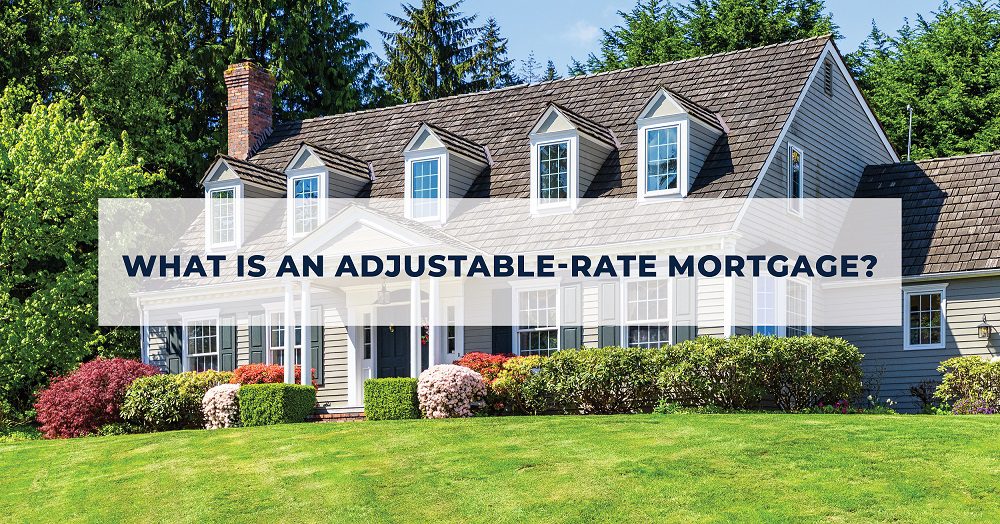
By Alena Kairys
Nov 29, 2022When you’re considering different home loan products, one key question you should ask yourself is whether you want a fixed-rate or an adjustable-rate mortgage (ARM.) Many people become entranced by the ARM’s lower interest rates, but there’s more to them than their attractive rates. Here’s what you need to know about adjustable-rate mortgages.
What’s an Adjustable-Rate Mortgage?
Mortgages can generally be categorized into two types: fixed-rate mortgages and adjustable-rate mortgages. As their names suggest, the interest rate for an ARM is variable and can change over the life of the loan. ARMs are appealing because of their lower starting rate and the money-saving benefits during the beginning of the loan. It’s important to be financially prepared when the rate adjusts, as no one can predict how much they will change in the future. Having an ARM can become a problem if the rate increases to a point where you can’t afford to make payments. This element of uncertainty is why ARMs typically have lower rates than fixed-rate mortgages.
Types of ARM Loans
Hybrid
Hybrid ARMs have an initial fixed-rate period (often for 5, 7, 10, or 15 years) during which you’ll pay the same interest rate you closed on. After that period ends, your rate adjusts to whatever the current rate is for the life of the loan. The rate adjustment period can vary depending on the loan. Hybrid ARMs have an interest rate cap that limits how much the rate can increase or decrease within a certain timespan. For example, a 5/1 ARM may be structured with a 5/2/5 rate cap where after the first five years, the rate can be up to 5% higher than your initial rate in the sixth year. After that, the rate can increase up to 2% from your starting rate for the rest of the term. The last number in the rate cap indicates the maximum the rate can increase during the life of the loan, which is 5%. Make sure you understand and consider the loan’s rate cap so you know how much you could be paying. Locking in a competitive rate for the first few years gives you time to build savings, and you could save even more if the rate drops in the future.
Interest-Only
With interest-only ARMs, you pay a lower rate upfront and only make interest payments for a certain amount of time. Your monthly payment will be lower since you’re just paying interest. Be aware that you won’t be gaining equity since your payment isn’t going towards the principal. After the interest-only span is over, you’ll be making interest and principal payments, while being subject to an adjustable rate. Interest-only ARMs also have rate caps. Make sure you understand the repayment terms, as some loans may require a balloon payment where the entire balance is due soon after the interest-free period.
Is it Right for You?
Though fixed-rate mortgages are perennially popular, adjustable-rate mortgages can be a good fit for some buyers. An ARM works well for people with flexible lifestyles and finances. For instance, if you have a solid level of savings, you’ll have more breathing room if rates rise significantly. This loan can also be beneficial if you expect your income to increase within the first several years of owning your home. For those who don’t expect to live in their house long (like if you have a starter home), an ARM lets you take advantage of the lower rate and build equity when it’s time to sell. If you decide later that you’d rather not deal with a varying rate, look into refinancing to a fixed-rate mortgage.
If the higher rates of fixed-rate mortgages are keeping you from becoming a homeowner, an adjustable-rate mortgage can be a helpful alternative. Even though your rate will change every now and then, the potential savings could make having a variable rate worthwhile.
If you have any questions about the home buying process, contact one of our licensed Mortgage Loan Originators. If you are ready to buy a home, click here to get started!
These blogs are for informational purposes only. Make sure you understand the features associated with the loan program you choose, and that it meets your unique financial needs. Subject to Debt-to-Income and Underwriting requirements. This is not a credit decision or a commitment to lend. Eligibility is subject to completion of an application and verification of home ownership, occupancy, title, income, employment, credit, home value, collateral, and underwriting requirements. Not all programs are available in all areas. Offers may vary and are subject to change at any time without notice. Should you have any questions about the information provided, please contact us.